
Patient advocate Liz Kruvand brought a fresh perspective to the SHEA Spring 2017 Conference when she discussed her own trials and tribulations with infection prevention in the pediatric hospital setting.

Patient advocate Liz Kruvand brought a fresh perspective to the SHEA Spring 2017 Conference when she discussed her own trials and tribulations with infection prevention in the pediatric hospital setting.

At the Society for Healthcare Epidemiology of America (SHEA) Spring 2017 Conference, Nimalie Stone, MD, MS, Team Lead, LTC, Division of Healthcare Quality Promotion at the Centers for Disease Control and Prevention (CDC), discussed infection prevention and control programs in nursing homes across the United States.

On March 30, 2017, at the SHEA Spring 2017 Conference, Matt Linam, MD, MS, discussed strategies to prevent healthcare workers from spreading healthcare-associated infections (HAIs).

At the SHEA Spring 2017 Conference, Heather S. Reisinger, PhD, MAA, discussed the importance of including patients in healthcare-associated infection (HAI)-prevention strategies.

According to the Centers for Disease Control and Prevention, residents in Miami-Dade, Broward, and Palm Beach counties have been at an increased risk of contracting Zika virus, since June 15, 2016.

As healthcare-associated infections continue to be life-threatening, Clorox Healthcare continues to provide bacteria- and virus-killing products that aim to reduce the risk of infection.

Researchers remind us that the Zika virus infection does not only cause complications in developing fetuses, after reports identified that nine patients from Venezuela presented with cardiovascular complications linked with the mosquito-borne infection.
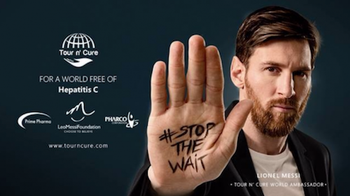
According to Tour n’ Cure, an Egyptian initiative that aims to rid the world of hepatitis C, Egypt aims to give program participants an opportunity to receive full treatment at an extremely low cost, while touring “the land that gave birth to the first great civilization.”

A yellow fever outbreak that started in December 2016 with only six human cases in just three states has now spread across the country, infecting thousands and killing hundreds.
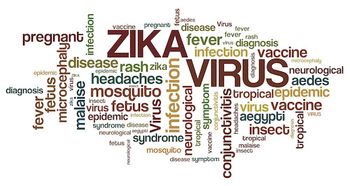
Robert W. Malone, MD, MS, has identified several already-licensed drugs that would be successful in blocking Zika virus replication in human tissues.

The need for continued surveillance to provide estimates on the rate at which the virus has impacted the incidence of birth defects has prompted the Centers for Disease Control and Prevention (CDC) to award funding to five jurisdictions.
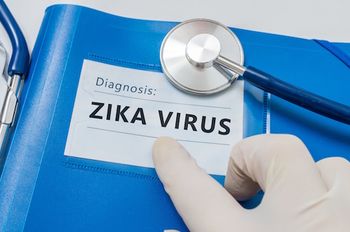
A new diagnostics tool to detect Zika was developed to bring easy-to-use technology to remote locations where Zika diagnostics is not readily available.

At the First International Zika Conference, Viviane S. Boaventura, MD, PhD, researcher, Fiocruz-Bahia, Gonçalo Moniz Institute, Brazil, presented her research that depicting an association between Congenital Zika Syndrome and hearing loss.
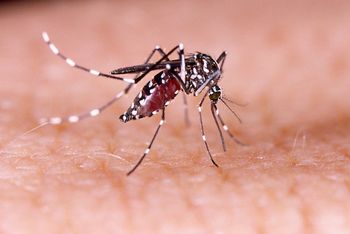
On Friday, February 24, 2017, at the First International Conference on Zika Virus, Matthew Aliota, PhD, discussed the Eliminate Dengue Program.

At the First International Conference on Zika Virus, Marta G. Cavalcanti, MD, PhD, discussed her team’s recent research regarding viral RNA shedding in symptomatic and asymptomatic Zika patients who are either mono-infected with Zika or Chikungunya, or co-infected with both.
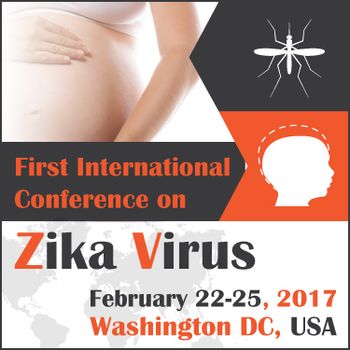
Contagion® will be attending the conference, so keep a look out for session coverage, as well as interviews with some of the key presenters.

Results from Zika virus testing conducted by the District of Columbia Department of Forensic Sciences Public Health Laboratory between July 14, 2016 and December 14, 2016 raised red flags when all results came back negative.

Researchers from Emory Vaccine Center study human dendritic cells infected with contemporary and historical strains of the Zika virus.

Regulus Therapeutic’s hepatitis C drug, RG-101, has been on clinical hold since mid-2016; FDA calls for additional data before hold is lifted.

Researchers from La Jolla Institute for Allergy and Immunology believe that their findings will provide a platform to understand how Zika virus makes its way into various body fluids.

This article is the second part of two-part coverage on a study conducted by Rutgers University researchers that analyzes the effects of misdiagnosing fungal infections on the increasing rates of antimicrobial resistance.

A recent study conducted by Rutgers University researchers analyzes the effects of misdiagnosing fungal infections on the increasing rates of antimicrobial resistance.

The researchers discovered that the protein is responsible for immune response and destruction of the bacteria.

Researchers from Germany recently published a new study that can change how future scientists study the replication of the Dengue and Zika viruses within the human body.

In a recent study, researchers found that retroviruses, such as HIV, date back to the Paleozoic Era.

These findings discredit previous allegations that this outbreak was the cause of one source and that the number of cases is higher than that identified in previous years.

The H3N2 strain of influenza continues to circulate throughout Calgary, as well as in the South Zone, while “little influenza activity in the North Zone [has been observed] to date.”

Contagion’s Top Five Zika-related news stories over the past year are included in this article.

Today, the US Food and Drug Administration (FDA) released a safety document cautioning healthcare providers from relying solely on commercial IgM Assay results when diagnosing Zika, as false positives have been observed.

A recent study found that azithromycin topical gel can protect against Lyme disease if administered within 72 hours of a tick bite.